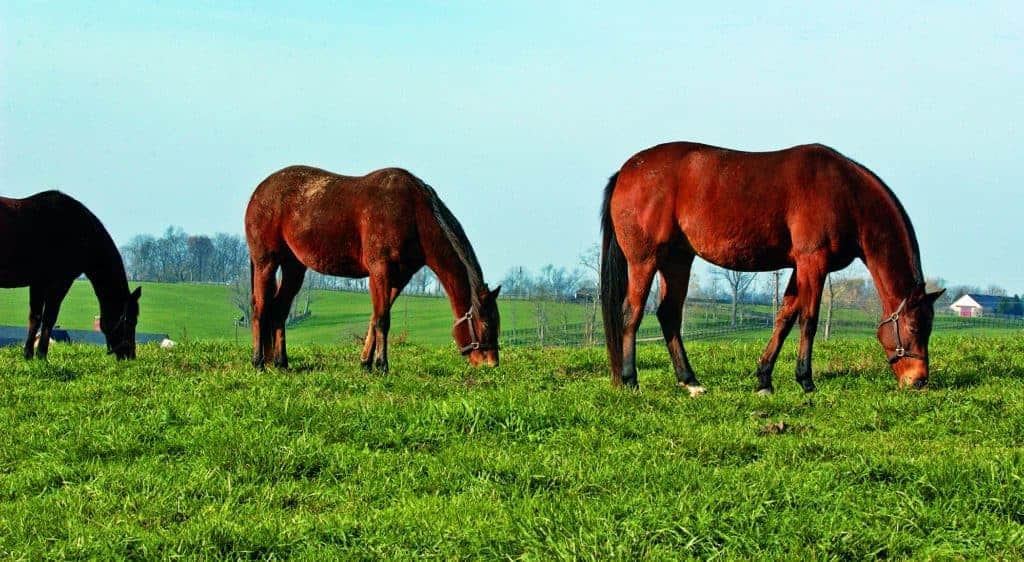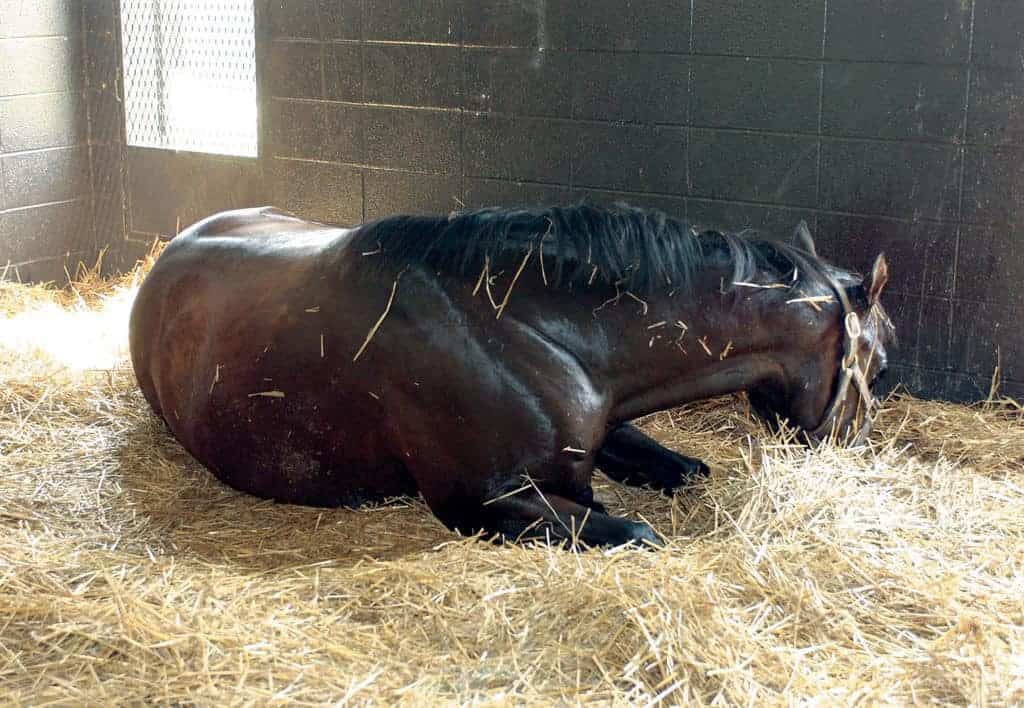
When a Horse Colics: The Physical Examination
A general physical examination is performed as part of the clinical evaluation of the horse exhibiting colic.

A general physical examination is performed as part of the clinical evaluation of the horse exhibiting colic.

Owners can help their vets diagnose colic by offering the afflicted horse’s complete health history.

Learn about gastric ulcers and how to treat them and decrease their likelihood of causing your horse distress.

Certain management factors might affect the likelihood of colic episodes.

Carol Clark, DVM, Dipl. ACVIM, shares her picks for the top equine medicine studies of 2013.

Learn about St Nicholas Abbey’s battle with a fracture that was ultimately ended by a severe bout of colic.
The 12-year-old Westphalian gelding was euthanized Jan. 18 in Florida following two colic surgeries.

Vets can image the cecal mesentery to garner information that could lead to a lymphadenopathy diagnosis.

Genomic research suggests that horses could also be susceptible to rotavirus from both cows and pigs.

One study showed that equine colic has an estimated prevalence of 4.2 events per 100 horses per year.
Researchers are observing an increasing trend of positive cases submitted in 2013 as compared to recent years.

Understanding the horse’s digestion process can help you better manage factors that could cause colic.

Champion Irish racehorse St Nicholas Abbey died the morning of Jan. 14 due to complications from colic.

Dr. Lisa Fortier shares her picks for the top equine surgery- and lameness-related studies of 2013.
Famed reining horse and sire Great Resolve, known as Einstein, died Jan. 2 due to colic surgery complications.
Laughing is a finalist for the 2013 Eclipse Award as the nation’s outstanding female turf performer.
Stay on top of the most recent Horse Health news with
"*" indicates required fields